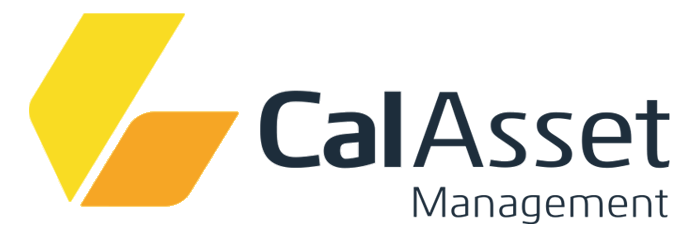In this week’s edition:
· Global Equity Markets Close Lower Amid Global Growth Concerns and Renewed Trade Tensions
· Gold Gains 0.78% Following Weaker-than-Expected US Jobs Report and Fresh Tariff Threats from Trump
· Ghana’s Treasury Auction Oversubscribed by 42.08%, as Yields Continue to Decline
· Ghana Stock Exchange Rally Continues, Led by Financial Stocks — GSE-CI Climbs to 43.03% YTD, GSE-FSI Advances to 43.99% YTD
Kindly click to view the full report: Global Market Update - August 4, 2025
AROUND THE GLOBE
· Fed Holds Rates Steady Amid Rising Growth Concerns
The Federal Reserve kept its benchmark rate unchanged at 4.25%–4.50% for a fifth straight meeting, though two governors dissented in favor of a cut—the first dual dissent since 1993. The Fed noted a moderation in economic activity in H1 and maintained its wait-and-see stance, citing persistent inflation, low unemployment, and rising uncertainty from trade tensions. Future rate moves will depend on data and risk assessments.
· US Job Growth Misses Forecasts, Prior Months Revised Down Sharply
US nonfarm payrolls rose by just 73K in July 2025, missing the 110K forecast. Major downward revisions to May and June data revealed 258K fewer jobs than previously reported. July gains were led by health care (+55K) and social assistance (+18K), while most other sectors were flat. Federal government jobs fell by 12K, continuing a downward trend since January.
· US Economy Grows 3% in Q2, Beating Forecasts
The US economy expanded by 3% in Q2 2025, rebounding from a 0.5% contraction in Q1 and surpassing the 2.4% forecast. Growth was driven by a sharp 30.3% drop in imports and stronger consumer spending. Government spending rebounded, while investment weakened and exports declined. Inventories dragged on growth, subtracting 3.17 percentage points from overall GDP performance.
· Eurozone Inflation Steady at ECB Target in July
Eurozone inflation held at 2.0% in July 2025, matching June’s rate and exceeding forecasts of 1.9%. Services inflation eased to 3.1%, offsetting quicker rises in food and industrial goods. Energy prices dropped by 2.5%, maintaining a deflationary trend. Core inflation stayed at 2.3%—its lowest since January 2022—supporting the European Central Bank’s pause in rate cuts.
· China Composite PMI Drops to 3-Month Low on Services Slowdown
China’s NBS Composite PMI fell to 50.2 in July 2025 from 50.7 in June, its weakest since April, reflecting a loss in growth momentum. Services growth slowed sharply, while manufacturing remained in contraction. Officials cited extreme weather and escalating trade tensions—including looming U.S. tariffs—as key drags, highlighting mounting domestic and external economic pressures.
GHANA
· BoG’s MPC Slashes Policy Rate to 25% Amid Disinflation and Strong Growth
The Bank of Ghana reduced its benchmark policy rate by 300 basis points to 25% on July 30, 2025, citing improved macroeconomic conditions, including falling inflation, strengthened external buffers, and confidence in the overall economic rebound. Inflation eased to 13.7% in June, it's lowest since 2021, while Q1 GDP expanded 5.3%, driven by agriculture and services. The cedi has gained 42.6% YTD. With reserves at $11.1 billion and a $5.6 billion trade surplus, the Bank signaled confidence in maintaining macroeconomic stability.
· Mobile Money Transactions Reach GH¢323.2 Billion in June 2025 Despite Monthly Dip
Mobile money transaction value in Ghana declined 10.2% to GH¢323.2 billion in June 2025 from May’s GH¢360 billion, according to the Bank of Ghana’s economic summary. Still, the value rose 44.3% year-on-year. Transaction volume slipped to 735 million but remained 14.1% above June 2024. Registered mobile accounts increased to 76.4 million, with 24.5 million active users. Float balance grew to GH¢28.9 billion, reflecting growing trust in mobile wallets.
AFRICA
· South Africa Cuts Interest Rate to 7% Amid Growth Concerns
The South African Reserve Bank lowered its benchmark interest rate by 25 basis points to 7% on July 31, 2025—its first cut since 2022. The move, widely expected, comes amid fears over US tariffs and lingering global trade uncertainty. Policymakers cited easing inflation (3% in June) and a stronger rand. Growth forecasts were revised down for 2025 and 2026, but lifted for 2027. The economy remains constrained by structural challenges, particularly in logistics and infrastructure.
· Kenya Inflation Hits 3-Month High at 4.1% in July
Kenya's annual inflation rate rose to 4.1% in July 2025, marking a three-month high from 3.8% in June. The uptick was driven mainly by higher prices for food and non-alcoholic beverages, transport, and housing and utilities. However, monthly inflation slowed, with consumer prices increasing just 0.1%—the smallest rise in nearly a year—following a 0.5% gain in June. The data signals persistent but moderate inflationary pressures in East Africa’s largest economy.
Sources: Bloomberg, Reuters, Trading Economics
